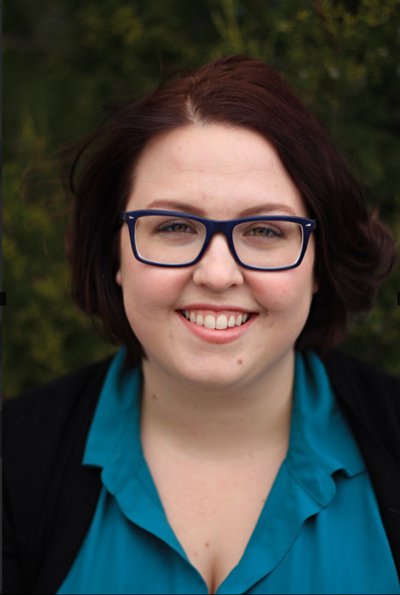Course Overview
Neuroscience is the scientific study of the nervous system, which includes the brain and spinal cord, to understand its structure, function, and disorders. The human nervous system is possibly the most complex, highly evolved biological system, and this course will provide an exploration of the nervous system from neuron to brain. This course will introduce you to the anatomy of the brain, exploration of neuron biology including how they signal and communicate, and cognitive neuroscience theories for processes that may include attention, perception, memory, language, and decision-making.
Additionally, possible subtopics covered may include the anatomy and physiology behind the sensory systems, motor movement and control, and how our brain and nerves regulate bodily function. Although the major focus of the course will be on the typical nervous system, common diseases may be introduced throughout the topics covered in the course. Students may gain an understanding of the nature of some common neurological diseases, which will provide further insight into how the normal nervous system functions. The course includes laboratory sessions in which real sheep brains will be studied, and we will also do several laboratory experiments to better understand the functional systems we are studying.
Through the assigned readings, lectures, and laboratory exercises, students are expected to gain an understanding of neuronal function and communication, and how that plays a role in the diverse range of human behaviors. Throughout the semester students will also practice thinking critically by solving problems in class, in groups and on your own, and learn the concepts of neuroscience as they apply to real world examples. In addition to classwork, there are possible field trips included in the course, as well as potential guest lectures from experts in the field. Additionally, there will be discussion of potential career paths that those who study neuroscience typically follow. This two-week intensive course is immersive, experiential, and provides a strong introduction to the nervous system.
All students who successfully complete the course will receive a Certificate of Completion and have the opportunity to request a Syracuse University noncredit transcript.
Learning Objectives
- Describe basic functional neuroanatomy and neuronal properties,
- Explain the processes involved in neuronal communication,
- Describe cognitive theories for a variety of human behaviors,
- Compare and contrast the anatomy and physiology of sensory and motor systems,
- Compare and contrast typical nervous system function with dysfunction occurring in common neurological diseases, and
- Identify and describe the structure, function, and location of multiple brain areas in the sheep brain.
Course Information
Course Prefix and Number: SCN 149
Format: On Campus (at Syracuse University’s main campus)
Eligibility: Students must be of rising high school sophomore, junior, or senior status – or a 2026 high school graduate.
Credit: Noncredit
Grading: Pass/Fail
- Residential: $4,995
- Commuter: $4,024
Program rates are subject to change and will be approved by the board of trustees. Discounts and scholarships are also available.
Program Information
Summer College – On Campus: Experience what college is really like: take a college-level course, live in a residence hall, have meals with friends in a dining hall, and participate in activities and events on campus.
Course Dates and Details
| Program | Course Dates | Synchronous Class Time (Eastern Time) | Credit/Noncredit |
|---|---|---|---|
| Summer College – On Campus | 2-Week Session II: Sunday, July 19 – Friday, July 31, 2026 | MTWThF; 9 a.m. – 12 p.m. Lecture, 1 – 4 p.m. Lab | Noncredit |
To see if this course is ‘open,’ refer to the full course catalog.
Course Requirements
Required Supplies
Students should budget for required textbooks and supplies. A supply and textbook listing will be sent to students before the start of the program.
Typical Day
Tentative Schedule
Each day you will have either in person or recorded lectures, which include embedded questions aimed at exploring the material. You will work in groups during class time on problems which may include case studies, experimental design questions, and data from cutting-edge research papers. In the afternoon you will spend time in the lab, where you will perform dissections and experiments aimed at deepening your understanding of neuroanatomy and neurophysiology. Homework will sometimes include recorded lectures, research papers, or writing assignments aimed at either introducing or deepening your understanding of course material.
When class is over, and on weekends, students can look forward to various Summer College – On Campus activities to meet and connect with other students! Check out our On Campus Experience page for more information!
Faculty Bios
Dr. Jen Cook, Ph.D.

Dr. Jen Cook, Ph.D., is an Assistant Teaching Professor for the Neuroscience Program at Syracuse University, where she teaches a variety of upper and lower division courses in neuroscience and is the primary advisor to students in the Neuroscience Major. Dr. Cook is originally from Dallas, Texas, where she got her B.S. in Biomedical Science from Texas A&M University, and she has a Ph.D. in Neuroscience from the University of Minnesota. Her dissertation work was on the molecular mechanisms of chronic pain, particularly focusing on the interaction of the immune and nervous systems. She enjoys hiking in beautiful Upstate New York, has a dog and two cats, and enjoys visiting her siblings and nephew in NYC as much as possible.
